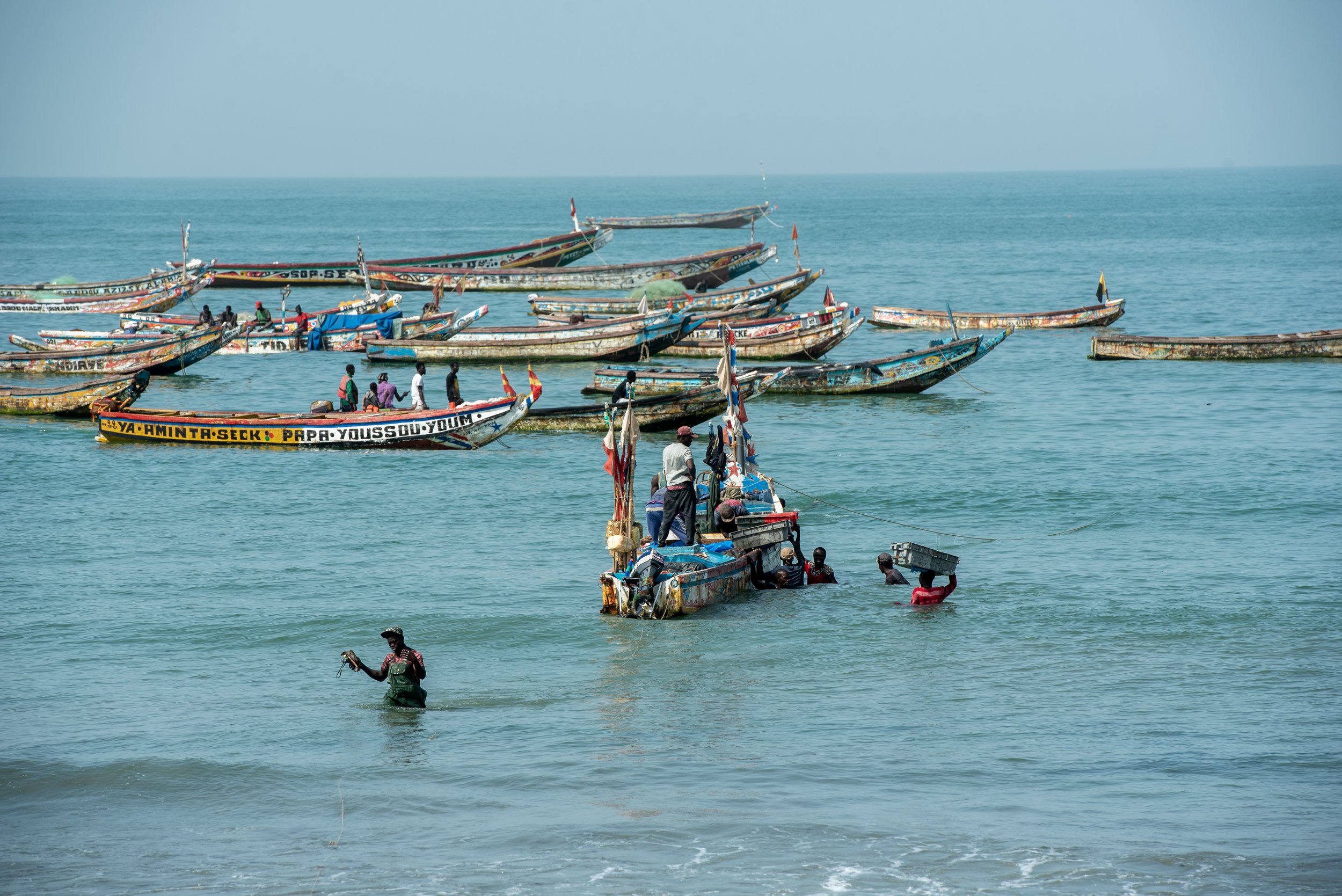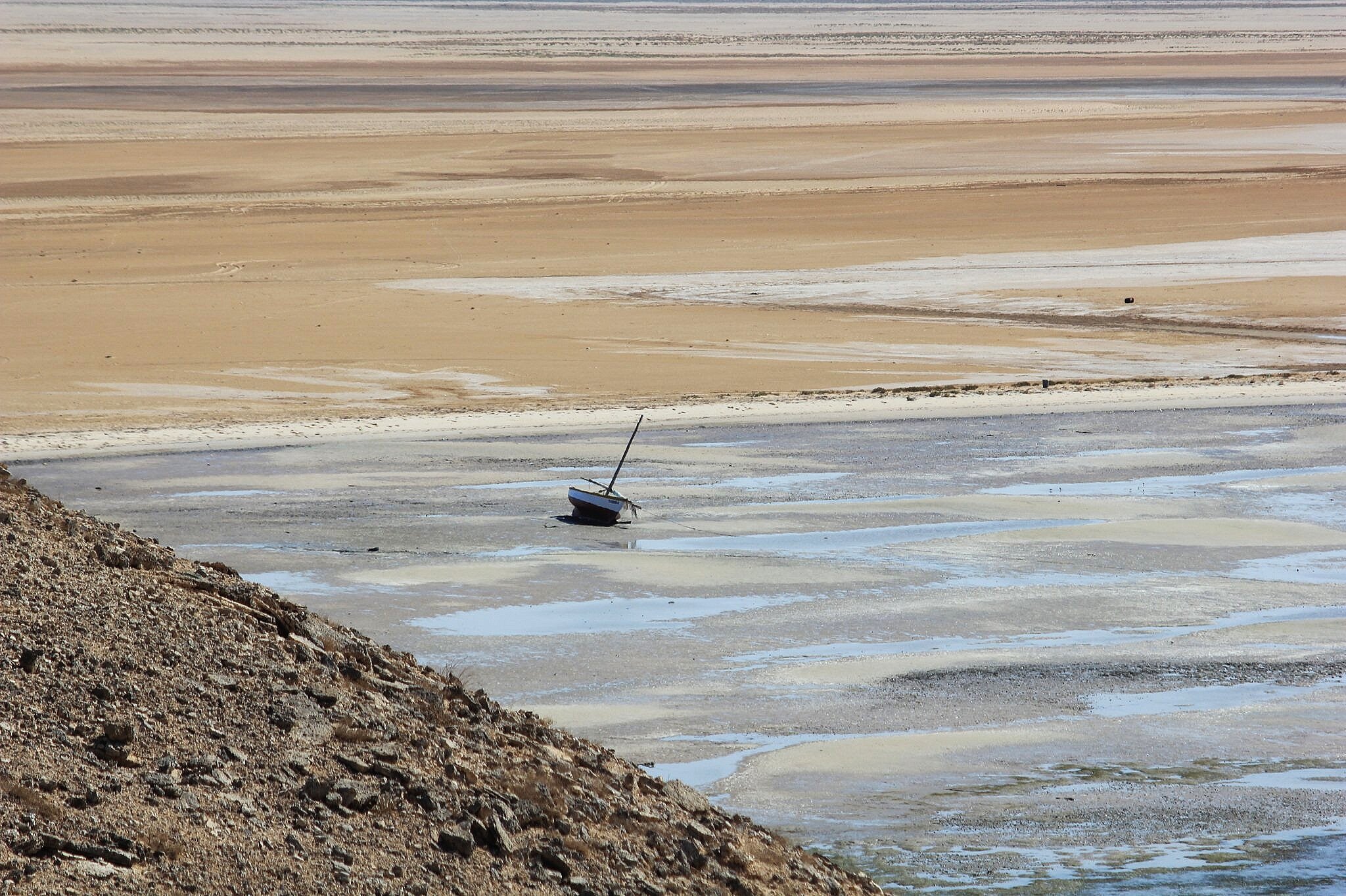The Joint Committee of the EU-Mauritania SFPA will meet in Nouakchott from 4 to 6 December 2024. In this article, the author makes a number of recommendations in the light of the conclusions of the Fishery Committee for the Eastern Central Atlantic (CECAF). In its latest report, CECAF described the catastrophic situation of shared stocks of small pelagics and recommended a substantial and immediate reduction in fishing effort of 60% for flat and round sardinella.
West Africa: The EU should promote human consumption over the production of fishmeal and fish oil
JOINT LETTER: 11 African artisanal fisheries organisations and development NGOs send a letter to Commissioners Virginius Sinkevicius and Jutta Urpilainen asking them to use the crucial voice of the EU through Sustainable Fisheries Partnership Agreements and the EU-Africa partnership to address the impending food crisis in the West African region linked to the fishmeal and fishoil production.
EU-Mauritania SFPA: scientists highlight key sustainability issues, do not consider coral reefs protection
The latest minutes of the meeting of the last Joint Scientific Committee (JSC) of the Sustainable Fisheries Partnership Agreement between the European Union and Mauritania reveal that there is still a long way to go to ensure that all EU fleets active in Mauritania fish sustainably, particularly as regards the control and limitation of by-catches and discards.
EU-Senegal fisheries partnership: transparency is essential at all levels
In a contribution sent to the European Commission, co-signed with 8 other civil society and environmental organisations, we highlight the most important points to be taken into account for the renewal of the protocol, to ensure that the fishing agreement has a positive impact for small-scale coastal fishing communities.
WTO agreement on fisheries subsidies: a mouse is born
For the agreement to contribute effectively to the Sustainable Development Goals, it is essential that the forthcoming negotiations, prior to the thirteenth ministerial conference, focus on the main threat to artisanal fisheries in Africa: overfishing and overcapacity, especially by foreign-owned vessels.
Fisheries management in West Africa: the example of sardinella
Certifying the unsustainable: The Fisheries Improvement Project in Mauritania
The strategy of transforming seafood industry through voluntary partnerships and market-based incentives is the approach currently favoured by many environmental NGOs and donors. The case of Mauritania reduction fisheries “Fisheries Improvement Project” highlights the fundamental flaws with the corporate friendly approach and the urgent need to resist this model becoming normalised.
West Africa: PESCAO should be more effective and attentive to artisanal fisheries
The PESCAO programme for the improvement of fisheries governance in West Africa, financed by the EU from the 11th EDF Regional funds, started in June 2017 and will end in June 2024. After nearly 4 years, an evaluation is underway to assess the results obtained and to see how to improve its implementation, in a context where the countries of the ECOWAS region are focusing on the development of a blue economy strategy.
EU-Mauritania SFPA: The requests of the Mauritanian artisanal fisheries and civil society
This week the European Parliament is discussing a first draft by rapporteur Izaskun Bilbao on the Sustainable Fisheries Partnership Agreement between the European Union and Mauritania. This agreement is of great interest to the EU fisheries sector and is the most expensive of all fisheries agreements between the EU and third countries.
The new EU-Mauritania agreement: towards a sustainable management of small pelagics in West Africa?
In this third article in the series on fisheries in Mauritania, the authors review the state of overexploitation of small pelagic stocks, look at the ways the EU SFPA seeks to address the issue and come back to the demand of several stakeholders for a regional fisheries management organisation for shared small pelagic stocks.
Experimental fishing or experimental pillaging in Liberia?
Transparency: Mauritania improves its score, but is still far from the goal
Mauritania: A 40-metre seiner authorised to fish on the borders of the Banc d'Arguin
"The rich man's fish feeds on the poor man's sardinella"*
In this article, the author extracts from the recent report ‘Feeding a monster: How European aquaculture and animal feed industries are stealing food from West African communities’ the main findings related to the European Union and its Members States, and looks at how some of the recommendations may be implemented in the EU.
Sustainable Fisheries Partnership Agreement negotiations between the EU and Mauritania: staying on course
As a new round of negotiations between the EU and Mauritania is expected to start soon, this position paper recalls the demands of the Mauritanian artisanal fisheries sector, highlighting technical conditions, such as the access to octopus to be reserved for local artisanal fishers, the zoning for trawlers to be maintained, and landings of small pelagics to be kept. Governance issues are also key, such as transparency, especially regarding the activities of other foreign fleets; and the urgent need for the SFPA to contribute to regional management for shared stocks.
Mauritania: How the EU agreement can be used to improve fisheries management
As the EU is negotiating a new protocol under the existing agreement, concrete steps should be taken to ensure the sustainable exploitation of sardinella in the region, including increased sampling of small pelagic catches, applying the recommendations of the FAO working group and starting consultations with neighbouring countries on joint management of shared stocks.
European industries must disinvest in West Africa’s booming fishmeal and fish oil sector
“Round sardinella, key for food security in West Africa, is further declining”
Fishmeal production in West Africa: Issues for coastal communities
With the growth of fishmeal production in West Africa, CFFA partners are organising a regional meeting to discuss the local impacts on food security, employment, resources and health. Here we highlight the key concerns and set out some questions to inform the meeting. Instructions are provided on how you can contribute to a online discussion that will lead up to this event. Please share your views!
The growth of fishmeal production in Mauritania: The implications for regional food security
Since 2010, the number of fishmeal factories in Mauritania has increased from 6 to 23, with most of these situated in the Northern port of Nouadhibou. Analysis of the fish being caught to supply these factories published in a recent paper provides a new insight into the regional migration of small-pelagic fish, casting some doubt on previous theories that have informed regional management advice. The government of Mauritania encouraged new investments in local fishmeal production in the belief this would target underexploited stocks of coastal species, with no overall impact on the availability of fish for direct human consumption. Yet there is now concern that the factories are relying on a different species, the round sardinella, which is a staple food in West Africa, but is now considered over-exploited by the FAO’s working group monitoring small-pelagic fish stocks in the region.





















